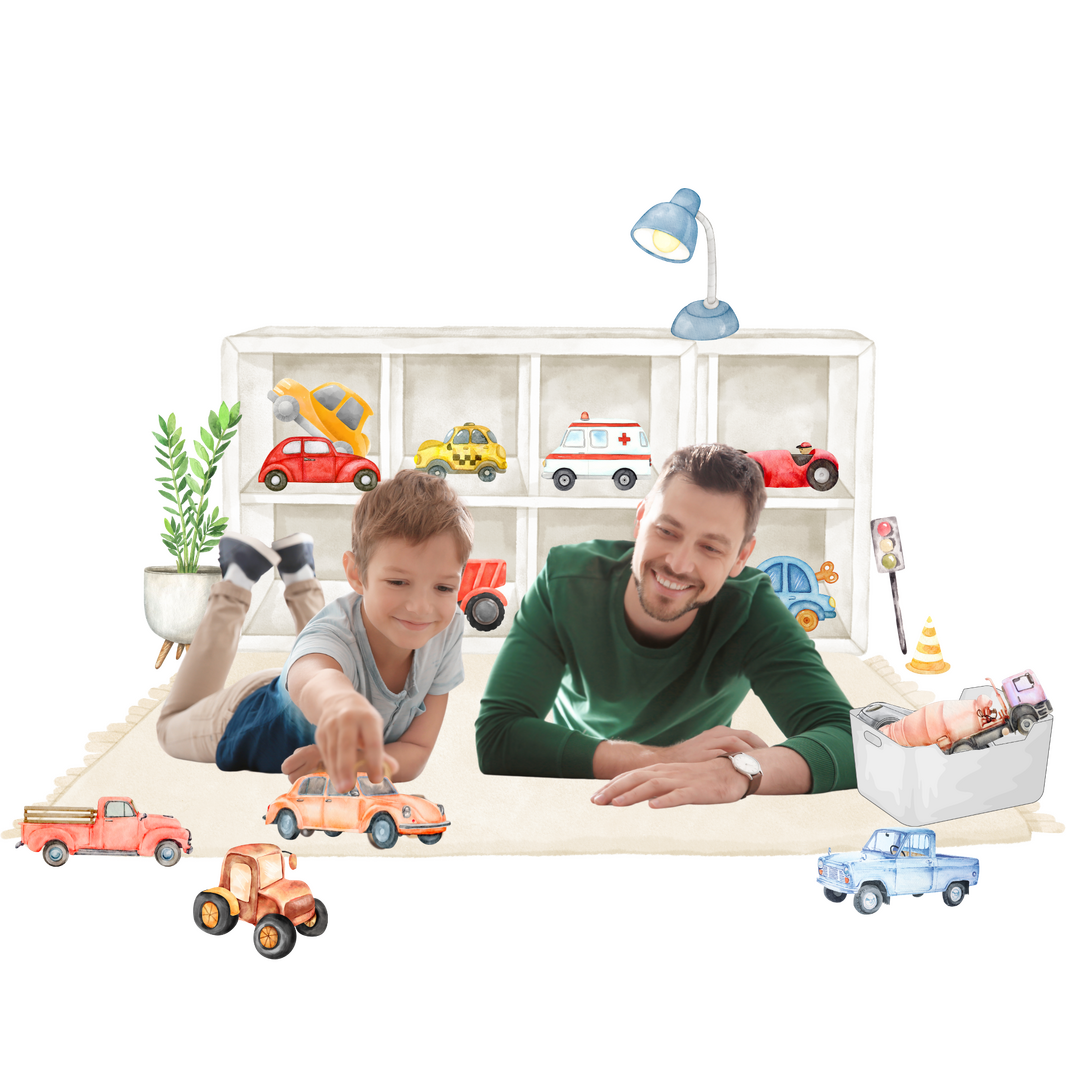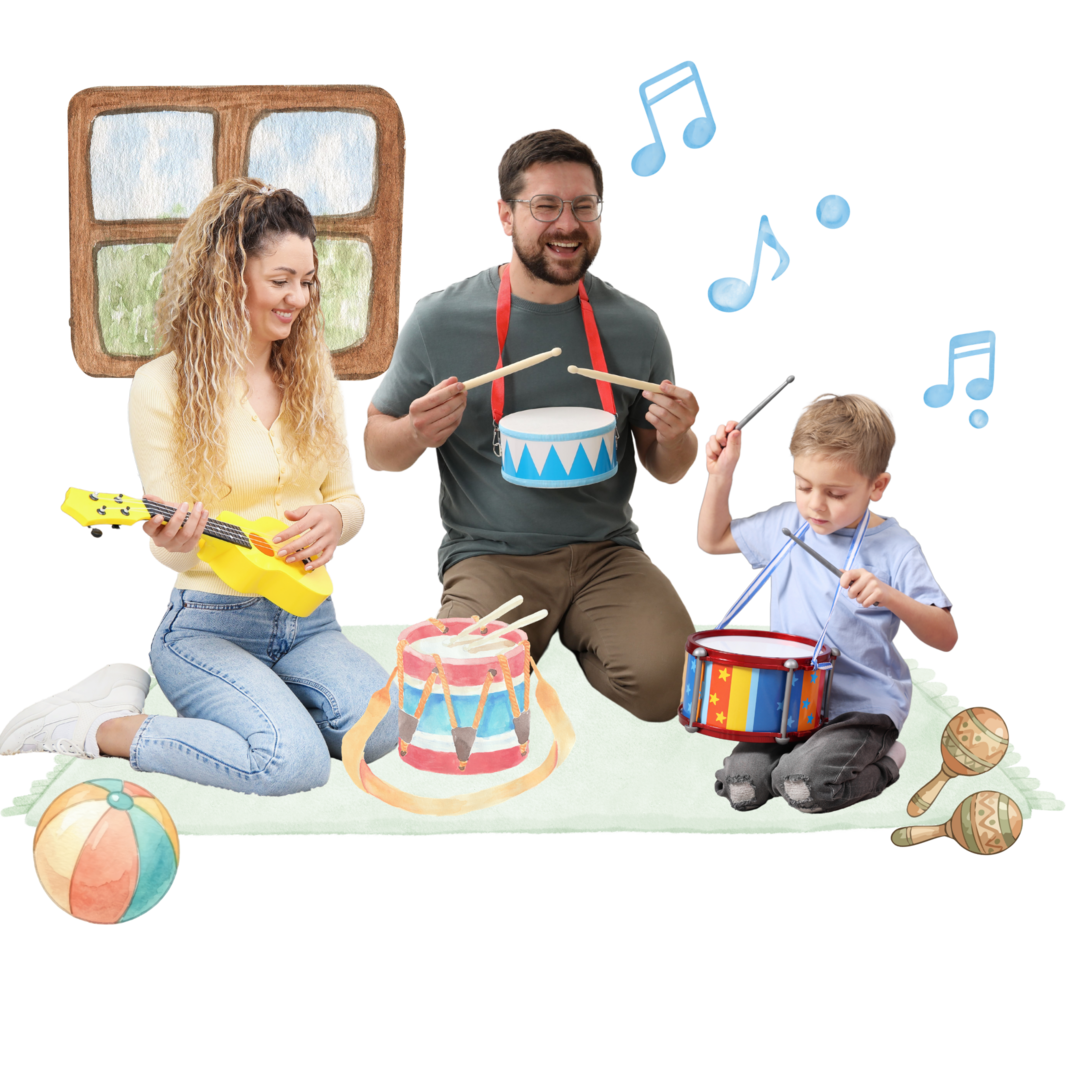Child & Family Play Therapy (Online)
Strengthening the Parent–Child Relationship Is the Most Powerful Intervention We Have
Most children don’t need to be “fixed.”
They need adults who understand them, feel regulated with them, and know how to respond in ways that build safety and connection.
That’s why my work now focuses primarily on Dyadic Play Therapy and Filial / Child-Parent Relationship Therapy (CPRT) — evidence-based approaches that place parents and caregivers at the centre of change.
Sessions are delivered via secure telehealth across Australia.
Why Parent-Involved Therapy?
Research consistently shows that when caregivers are actively involved in therapeutic play approaches, outcomes are stronger and more enduring than child-only therapy.
A meta-analysis of Play Therapy and Filial Therapy found parent engagement promoted significant improvements in:
-
Child behaviour
-
Emotional regulation
-
Parent stress
-
Parent empathy
-
Attachment security
Bratton, S., Ray, D., Rhine, T., & Jones, L. (2005). The efficacy of play therapy with children: A Meta-analytic review of the outcome research. Professional Psychology: Research and Practice, 36(4), 376-390.
In short:
When parents learn therapeutic play skills, children improve — and the changes last.
Why I Use Dyadic & Filial Models
After more than 30 years working with children, young people and families, I’ve become increasingly clear about one thing:
The most powerful and lasting change happens in the relationship between a child and their caregiver.
While individual child therapy can be helpful, research and clinical experience consistently show that when parents are actively involved, children’s emotional regulation, behaviour, and confidence improve more deeply — and the gains last longer.
Parent-involved play therapy trains parents to use therapeutic play skills at home. Rather than relying on a therapist once a week, families build skills they use every day.
I use these models because they:
-
Strengthen attachment and emotional safety
-
Reduce power struggles by shifting relational patterns
-
Increase parental confidence and attunement
-
Support neurodivergent children without trying to “fix” who they are
-
Create sustainable change beyond the therapy room
For neurodivergent children — including autistic, ADHD and AuDHD young people — relational safety and co-regulation are foundational. In my practice, all parent-involved therapy is neurodivergent-affirming and trauma-informed — we pay close attention to nervous system states, sensory needs, communication differences and patterns of misunderstanding within the family context. We build understanding, flexibility and connection within the parent-child relationship itself.
For children exploring gender identity, this model supports caregivers to respond with understanding and affirmation, strengthening connection during what can be a vulnerable time.
I don’t see therapy as something done to a child.
I see it as something built with a family.
My role is not to replace you as the important adult/s in your child’s life — it’s to strengthen you in that role.
What Is Dyadic Play Therapy?
Dyadic Play Therapy is grounded in attachment theory, child-centred play therapy and systemic family practice. It involves working with parent and child together in session, strengthening co-regulation, emotional safety and relational repair in real time. It involves:
-
Parent and child attending sessions together
-
Strengthening attachment and emotional safety
-
Supporting co-regulation and repair
-
Increasing parental confidence and attunement
-
Reducing behavioural escalations by addressing relational patterns
Rather than working around the parent–child relationship, we work through it.
What Is Filial / Child-Parent Relationship Therapy (CPRT)?
Filial Therapy was originally developed by Bernard and Louise Guerney, and later refined into the structured Child-Parent Relationship Therapy (CPRT) model by Garry Landreth and Sue Bratton. These evidence-based models train parents to become confident, therapeutic partners in their child’s emotional growth.
Parents are coached to:
-
Conduct short, special play sessions at home
-
Use therapeutic play responses
-
Reflect feelings effectively
-
Set warm, consistent limits
-
Deepen emotional connection
Parents become the primary therapeutic agents in their child’s life.
That’s powerful.
Playful EMDR
Eye Movement Desensitisation and Reprocessing (EMDR) is an evidence-based trauma therapy that helps the brain process overwhelming or distressing experiences so they no longer feel immediate, intense or “stuck.”
EMDR works by using gentle bilateral (right and left) stimulation (such as eye movements, tapping or rhythmic movement) to support the brain’s natural capacity to reprocess memories so they feel less intense and more integrated. This supports the brain’s natural ability to reprocess memories, allowing them to be stored in a way that feels safer and more settled in the nervous system.
For children and adolescents, traditional EMDR can feel too structured or language-heavy. Playful EMDR adapts EMDR using drawing, storytelling, movement, imagery and metaphor, making it developmentally appropriate and engaging.
Children do not need to describe events in detail. We work gently and creatively within their window of tolerance, always prioritising safety and regulation.
In my practice, Playful EMDR is integrated within dyadic sessions so that trauma processing happens alongside relational support. For neurodivergent children, sessions are adapted to honour sensory needs, communication styles and pacing preferences.
The goal is not to erase memory — but to reduce its emotional charge, helping the child feel more regulated, confident and able to move forward.
Telehealth - Why it Works
All sessions are delivered online via secure video.
For dyadic and filial approaches, telehealth often enhances effectiveness because:
-
I see the real home environment.
-
Parents practise skills where they will actually use them.
-
Children remain in familiar sensory spaces.
-
Transitions are easier for anxious or neurodivergent children.
For Playful EMDR, telehealth works well because:
- Familiar environments support nervous system safety
- Children can quickly access their own tools/spaces for regulation between sets of bilateral stimulation
- Flexible bilateral stimulation options are available at home, which can then be naturally integrated into play.
Therapy becomes integrated into daily life, not separate from it.
About Angie
I’m an Accredited Mental Health Social Worker and Registered Play Therapist with over 30 years’ experience supporting children, young people and families.
Over time, my work has increasingly centred on strengthening parent–child relationships — particularly in families navigating neurodivergence, anxiety, trauma and identity exploration.
I bring depth of training in play therapy, dyadic models, filial approaches and Playful EMDR, alongside practical experience working with complex family systems across community and private settings.
Families often describe my style as steady, thoughtful and affirming — able to hold big emotions while helping parents feel capable rather than blamed.
Primary Qualifications & Memberships
Social Work:
- Accredited Social Worker
- Accredited Mental Health Social Worker
- Accredited Social Work Supervisor
- Member Australian Association of Social Work
Family Therapist
Play Therapy
- Registered Play Therapist
- Registered Play Therapist - Supervisor
- Member - Australian Play Therapists Association
- Member - International Consortium of Play Therapy Associations
University Lecturer Industry Professional (Play Therapy)
How to begin?
If you’re wondering whether this approach is right for your family, the first step is a brief 15m parent consultation by phone. After all, involving someone else in your child's wellbeing and development is a huge step, and it is important you feel Angie is the right therapist for your child.
From there, we can explore:
-
Dyadic sessions
-
Filial / CPRT work
-
Playful EMDR integration
-
Or a tailored combination
Sessions are available online across Australia.




Many of the families I work with are navigating separation. Some parents are able to maintain constructive communication regarding their children; others are managing more complex dynamics.
My Separated Parents Policy outlines whether and how therapy proceeds in these situations to ensure:
-
The child’s emotional safety is prioritised
-
Legal and consent requirements are met
-
Therapy is not drawn into parental conflict
-
Communication remains clear and appropriate
Dyadic and filial approaches rely on relational safety, so clarity around parental consent and communication is essential. Before therapy begins, both parents with parental responsibility are required to review and agree to this policy.
You can read the full policy here






